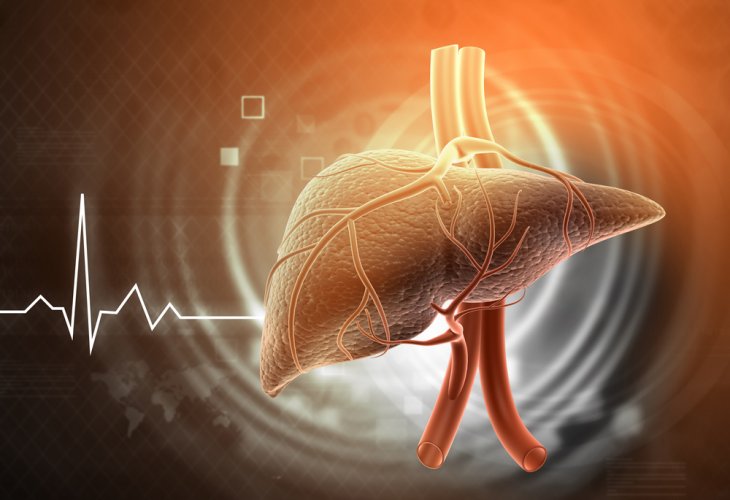Fatty Liver: Why It's Important to Maintain Liver Health and What Happens When It Becomes Fatty
Fatty liver disease initially presents no symptoms, allowing damage to occur quietly and unnoticed.
 (Photo: shutterstock)
(Photo: shutterstock)How many of us actually pay attention to our liver? How many make sure to check what's happening there at all?
Most people check blood pressure, cholesterol, diabetes - but the liver receives almost no attention, and it's time to change that.
The liver is the largest and heaviest organ in our body (weighing 1-1.2 kg) and also one of the most important. If you wish, think of this organ, located in the upper right abdomen behind the lower rib cage and below the diaphragm, as the body's industrial center.
And why an industrial center?
It is responsible for breaking down proteins, carbohydrates, and fats that come from the digestive system, transforming them into energy, and storing them. Furthermore, it filters and removes toxins. The liver produces bile juices that are responsible for fat absorption in the digestive system and for producing clotting factors.
When liver function is impaired, initially, it shows no symptoms. Gradually, its ability to perform the various functions of breaking down, filtering, and removing toxins decreases, leading to liver inflammation, which in rare cases can worsen to the point of needing a liver transplant.
The main damages are caused by inflammations. The transition from a fatty liver state to an inflammatory state may lead to cirrhosis of the liver - a condition in which healthy tissue is replaced with scar tissue. When this inflammatory state persists, it harms the liver's functional capacity, and eventually, it fails completely, with the only cure being a liver transplant.
The big problem with the disease is that in its initial state, it has no symptoms - so patients do not feel sick, but the damage quietly happens within.
Since there is no effective medication when the disease is discovered at a late stage, it's truly a problem, and hence it's important to treat and cleanse the liver as early as possible.
Typical symptoms of fatty liver disease:
- Increased fatigue
- General discomfort
- Pain in the right side of the abdomen
- Increased liver enzymes
- Depression
- Restlessness
- Lack of energy
- Eye problems
- Immune weakness
- Digestive issues
- Digestive imbalance
- Urological issues.
Causes of fatty liver:
- High blood pressure
- Type 2 diabetes
- High blood fats
- Overweight
- Constipation
- Lack of physical activity
- Processed foods
- Nutritional deficiencies - vitamins, minerals, essential fatty acids, and antioxidants
- Absorption issues
- Stress
- Drugs
- Toxin exposure
- Metabolic syndrome
- Various medications.
Simple drugs, like pain relievers and fever reducers such as those from the paracetamol family, can be toxic to the liver and cause damage.
Medications taken for a period, like those from the Roaccutane family for acne treatment, oral antifungal medications such as Nizoral, cholesterol-lowering drugs from the statins family, certain antibiotics like Augmentin, birth control pills, heart rhythm-controlling medications like Procor and others - can damage the liver. Combining drugs with alcohol can lead to cirrhosis and functional failure requiring liver transplantation.
In the next article, we will discuss treatment and prevention methods. It's important to know that if treated in time, the disease is reversible.
Research suggests that even a small weight loss of 10% leads to dramatic improvement and reduction in liver fat and inflammation.

